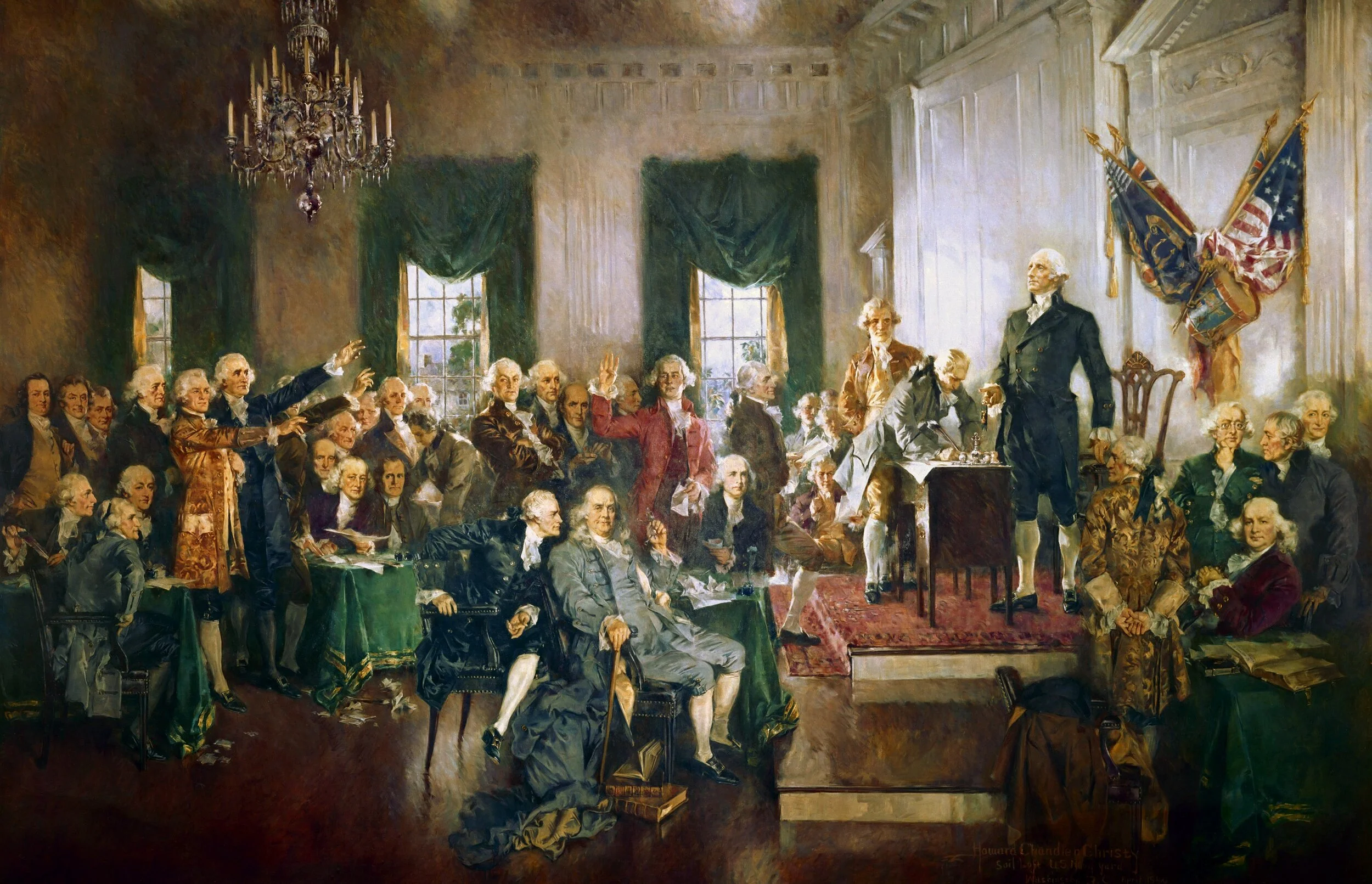LRTC: The civil war amendments
/Just as 10 amendments were adopted in a batch as soon as the constitution took effect, three amendments were adopt in a rush after the civil war. These post-war amendments all moved the country toward more equality, and toward a stronger and more dominant national government. Historian Eric Foner describes the adoption of these three amendments as the nation’s second founding.
Amendment 13
1. Neither slavery nor involuntary servitude, except as a punishment for crime whereof the party shall have been duly convicted, shall exist within the United States, or any place subject to their jurisdiction.
2. Congress shall have power to enforce this article by appropriate legislation.
Amendment 14
1. All persons born or naturalized in the United States, and subject to the jurisdiction thereof, are citizens of the United States and of the State wherein they reside. No State shall make or enforce any law which shall abridge the privileges or immunities of citizens of the United States; nor shall any State deprive any person of life, liberty, or property, without due process of law; nor deny to any person within its jurisdiction the equal protection of the laws.
2. Representatives shall be apportioned among the several States according to their respective numbers, counting the whole number of persons in each State, excluding Indians not taxed. But when the right to vote at any election for the choice of electors for President and Vice-President of the United States, Representatives in Congress, the Executive and Judicial officers of a State, or the members of the Legislature thereof, is denied to any of the male inhabitants of such State, being twenty-one years of age, and citizens of the United States, or in any way abridged, except for participation in rebellion, or other crime, the basis of representation therein shall be reduced in the proportion which the number of such male citizens shall bear to the whole number of male citizens twenty-one years of age in such State.
3. No person shall be a Senator or Representative in Congress, or elector of President and Vice-President, or hold any office, civil or military, under the United States, or under any State, who, having previously taken an oath, as a member of Congress, or as an officer of the United States, or as a member of any State legislature, or as an executive or judicial officer of any State, to support the Constitution of the United States, shall have engaged in insurrection or rebellion against the same, or given aid or comfort to the enemies thereof. But Congress may by a vote of two-thirds of each House, remove such disability.
4. The validity of the public debt of the United States, authorized by law, including debts incurred for payment of pensions and bounties for services in suppressing insurrection or rebellion, shall not be questioned. But neither the United States nor any State shall assume or pay any debt or obligation incurred in aid of insurrection or rebellion against the United States, or any claim for the loss or emancipation of any slave; but all such debts, obligations and claims shall be held illegal and void.
5. The Congress shall have power to enforce, by appropriate legislation, the provisions of this article.
Amendment 15
1. The right of citizens of the United States to vote shall not be denied or abridged by the United States or by any State on account of race, color, or previous condition of servitude.
2. The Congress shall have power to enforce this article by appropriate legislation.
I read amendments 13 through 15 in 2:54.
Amendment 13 is simple: It outlaws slavery. Amendment 5 is simple: It extends voting right to black men 21 and older.
Amendment 14, and its effects on the nation, are complicated and uncertain, even more than a century after they were created. The main, and most far-reaching, effect of the 14th is in the language saying “No State shall make or enforce any law which shall abridge the privileges or immunities of citizens of the United States.”
This language finally makes clear and explicit that the national government is in control, and that there is no balance between national prerogatives and state jurisdiction. If the national government says, “You can’t,” the states have no power whatever to say, “You can.”








